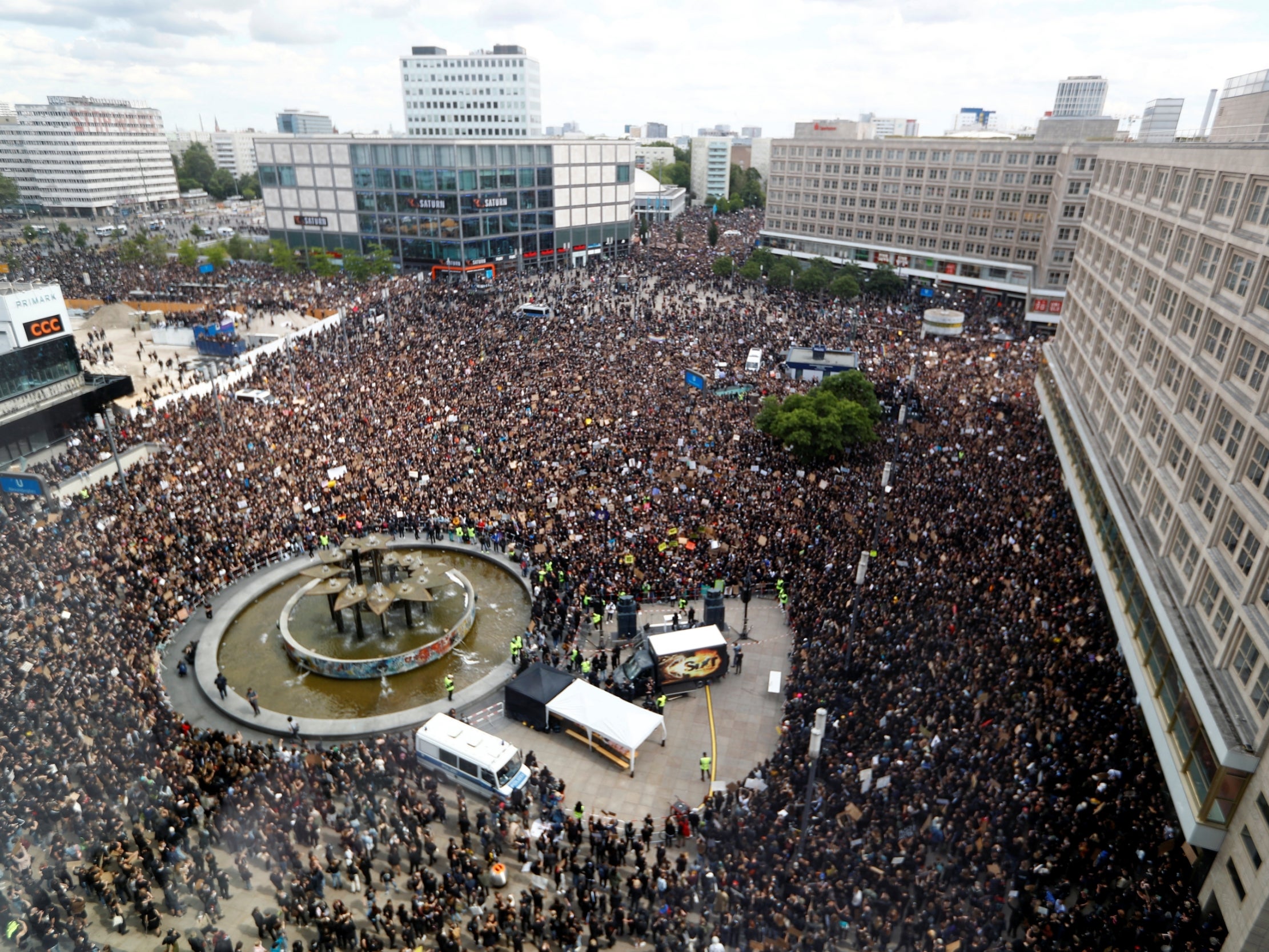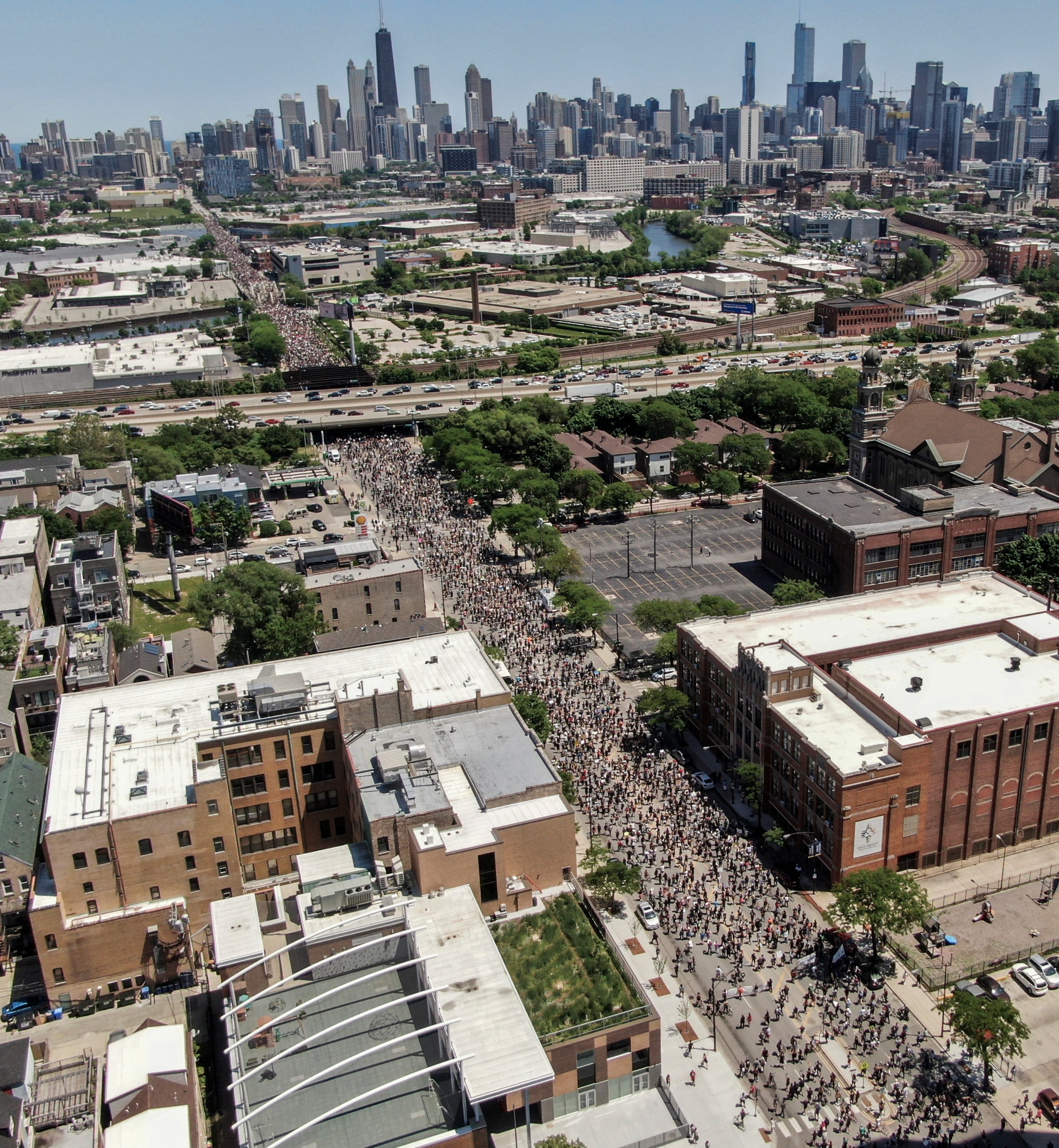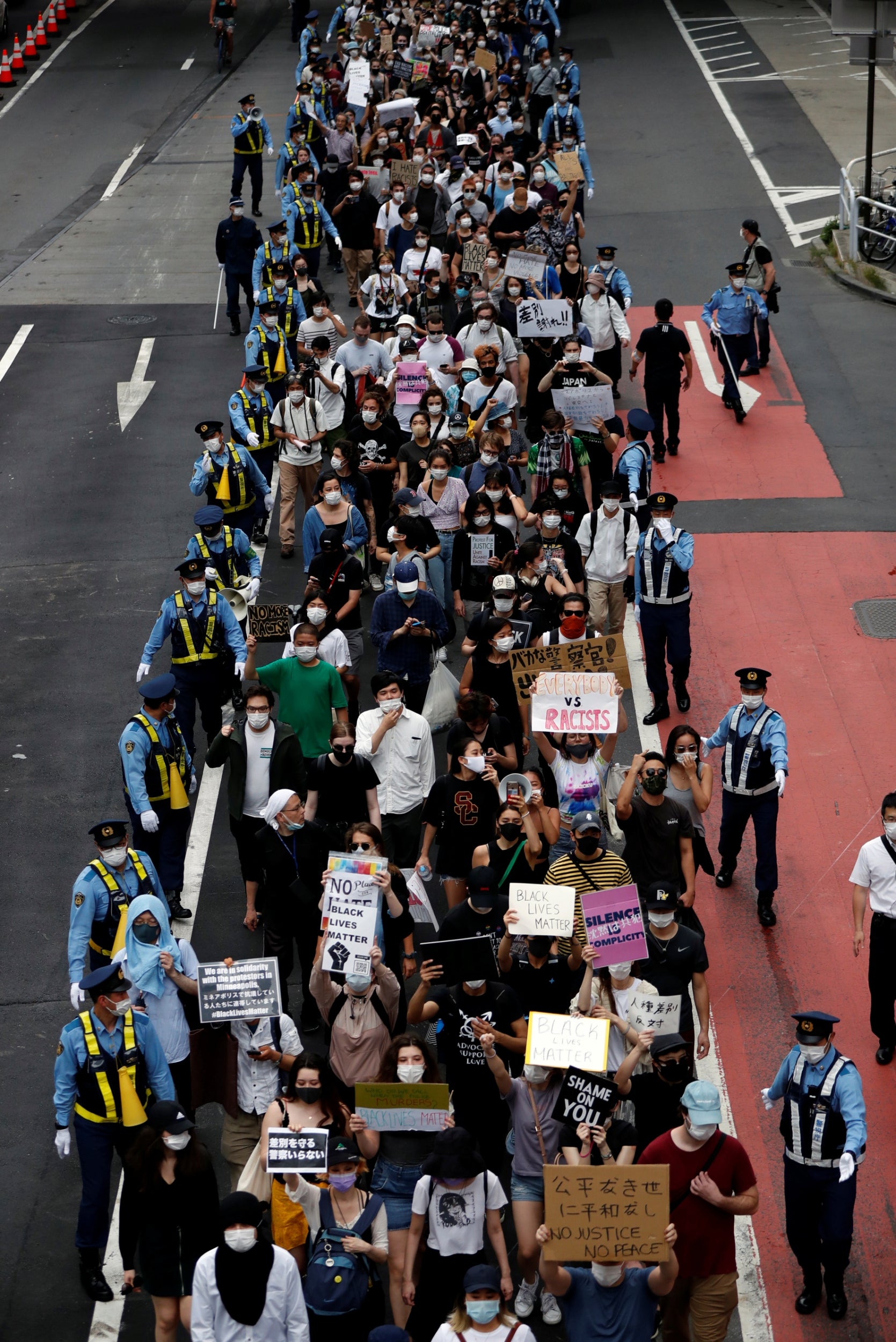Black Lives Matter: Aerial images show protests around the world after George Floyd’s death
Vast numbers emerge to take part in historic demonstrations despite pandemic
Your support helps us to tell the story
From reproductive rights to climate change to Big Tech, The Independent is on the ground when the story is developing. Whether it's investigating the financials of Elon Musk's pro-Trump PAC or producing our latest documentary, 'The A Word', which shines a light on the American women fighting for reproductive rights, we know how important it is to parse out the facts from the messaging.
At such a critical moment in US history, we need reporters on the ground. Your donation allows us to keep sending journalists to speak to both sides of the story.
The Independent is trusted by Americans across the entire political spectrum. And unlike many other quality news outlets, we choose not to lock Americans out of our reporting and analysis with paywalls. We believe quality journalism should be available to everyone, paid for by those who can afford it.
Your support makes all the difference.Hundreds of thousands of people have gathered across six continents to protest racism and police brutality in historic demonstrations sparked by the US police killing of George Floyd.
As many cities across the US lifted their coronavirus pandemic curfews, this weekend saw the largest demonstrations yet, featuring often festive scenes and an increasingly sharp focus towards securing radical reforms to the criminal justice system.
While those outwith the US mobilised in solidarity with American protesters, many also wished to oppose and highlight systemic racism and violent law enforcement in their own nations.
While numbers are undoubtedly far diminished as a result of the pandemic, aerial images captured the significant scenes in cities across Europe, the US, Sydney and Tokyo, underscoring the levels of racial injustice felt across the world.
Vast crowds turned out in Europe, often despite politicians’ and police forces’ warnings that protests are unlawful under current coronavirus legislations.

Thousands defied a police ban in Paris to gather around the Eiffel Tower, where Adama Traore, a 24-year-old Frenchman was killed in 2016 by police, during an rally in Champ de Mars.
In France’s southern port city of Marseilles, police fired tear gas and pepper spray in skirmishes with protesters who hurled bottles and rocks, after what had been an emotional yet peaceful demonstration.
In Berlin, police said 93 people were detained in connection with a demonstration, mostly after the main rally of 15,000 had ended.
Protesters also gathered in cities including Cologne, Budapest, Lisbon, Madrid and Barcelona, while Rome held its first ever major anti-racism rally, which drew thousands of people.
In Brazil, hundreds of protesters took to the streets of Recife holding signs reading “vidas negras importam”, after a five-year-old black boy accidentally fell to his death while in the care of a white woman.
Demonstrators turned out for the second consecutive day in the South Korean capital of Seoul on Saturday, many clad in black and holding signs reading: “May George Floyd rest in peace.”
About 20 people gathered in Hong Kong to show solidarity with the Black Lives Matter movement on Sunday outside the US consulate, after organisers called off the demonstration late on Saturday because of coronavirus restrictions.

“It’s a global issue,” said Quinland Anderson, a 28-year-old British citizen living in Hong Kong. “We have to remind ourselves, despite all we see going on in the US and in the other parts of the world, black lives do indeed matter.”
Some 300 people in Thailand and elsewhere joined an online protest against racism on Sunday, penning “I can’t breathe” messages on their arms and placards and watching the footage of Floyd’s last moments.
In Tokyo, demonstrators took to the streets in fury at the alleged police abuse of a Turkish man, holding placards reading “black lives matter” and “no justice, no peace”, as law enforcement watched on closely.
More than 20,000 people protested in Sydney and other Australian cities on Saturday, calling for an end to the deaths of indigenous Australians in police custody. Government minister Mathias Cormann branded demonstrators “incredibly selfish” and “incredibly self-indulgent” in reference to Covid-19.
In South Africa, demonstrators marched from the US embassy in Pretoria to the President’s Office on Saturday, with others laying flowers and placards at Johannesburg’s US consulate, some bearing the names of those who have died in encounters with South African law enforcement.
In the UK, tens of thousands turned out across Cardiff, Bristol, Manchester, Sheffield, Leicester, Bath and Birmingham on Saturday, with further protests planned in additional cities for Sunday.

They were overwhelmingly peaceful, with many demonstrators “taking the knee” – a protest stance made famous by American football star Colin Kaepernick.
In Bristol, demonstrators lay face down on the ground for eight minutes and 46 seconds, echoing the length of time Minneapolis police officer Derek Chauvin pressed his knee into a handcuffed George Floyd’s neck before he died.
In larger demonstrations on Sunday, protesters tore down a bronze statue of Edward Colston, a seventeenth-century slave trader.
After a day of peaceful protest in central London on Saturday, tensions bubbled over, with some protesters launching bottles, flares and other projectiles at police outside Downing Street – prompting mounted officers to charge at protesters.
In Watford, boxing heavyweight champion Anthony Joshua addressed the crowds, urging people to protest peacefully and to “hit them where it hurts” by using boycotts and investing in black-owned businesses.
Additional reporting by agencies
Join our commenting forum
Join thought-provoking conversations, follow other Independent readers and see their replies
0Comments